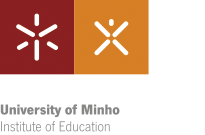The cycle of studies leading to the doctoral degree in Child Studies has the duration of 3 years (full-time schedule), which corresponds to 180 ECTS. This cycle of studies is primarily aimed at the development of: systematic understanding capabilities in a scientific field of study; research competencies, skills and methods associated with a scientific field; the ability to conceive, design, adapt and perform significant research, respecting the requirements imposed by the academic standards for quality and integrity. This cycle of studies includes: one curricular component that combines course units common to the various doctoral specialities, each possessing specific course units, and with transversal course units; the development of an original and especially designed thesis for this purpose, appropriate to the knowledge branch and doctoral speciality.
APPLICATIONS (april, 11-21, 2025) - with curricular component
Curso
2025/2026
Duration:
6 curricular semesters
Place:
Gualtar Campus, Braga (UM)
Contacts
Institute of Education
Campus de Gualtar
4710-057 Braga
Tel:
+351 253604240
Fax:
+351 253604659
E-Mail:
cpedagogico@ie.uminho.pt
URL:
http://www.ie.uminho.pt
Description
The course promotes the production of advanced knowledge with a focus on a training profile centered on the capacity for epistemological and methodological reflection around childhood, considering the child as an object of analysis, as well as the adults who interact with them in different contexts. All contexts where children experience their childhood are considered relevant, including educational contexts, both formal and non-formal; protection contexts, such as the Children and Youth Protection Commissions (CPCJ) and children and youth reception institutions. The course ensures the development of transformative intervention skills in such contexts, involving advanced knowledge of paradigms, theories, and conceptual frameworks that characterize the area of child studies, as well as the design and development of research projects, observing rigorous ethical standards and critically responding to educational, social, and political challenges.
Key learning outcomes
1. Develop high-level R&D skills in the field of Child Studies.
2. Understand conceptual and methodological frameworks in the field of Child Studies, based on an original, relevant, and socially relevant research object.
3. Design an innovative research project suitable for the nature of Child Studies in the context of training highly qualified professionals.
4. Analyze issues related to the individual and social conditions of life and learning of children, in the areas of physical, psychological, socio-motor, social and moral development, educational intervention, institutional action, cultural and artistic practices, and public policies.
5. Interpret contemporary scientific-technological, cultural, social, educational, economic, and political issues, demonstrating openness to diverse areas of knowledge and building a critical view of knowledge and reality.
6. Develop investigative, ethical, and training skills to disseminate research results in the academic community and society.
Access to higher education
Doctorates are eligible to access post-doctoral programs, particularly in the field of Child Studies and related areas.
Careers
Applied research in different intervention contexts with children; coordination of projects and activities in the areas of education and psychosocial intervention that ensure the development, learning, well-being, and valorization of children's rights; scientific advice to institutions, programs, and projects.
When applicable, the elective curricular units available as well as the registration conditions and the number of vacancies will be indicated annually.
A3ES Accreditation status:
Accredited
Resolution publication date:
21-10-2022
Registry number at Ministry:
R/A-Ef 2401/2011/AL03
Registry Date:
29-01-2023
Accreditation validity:
31-07-2027

